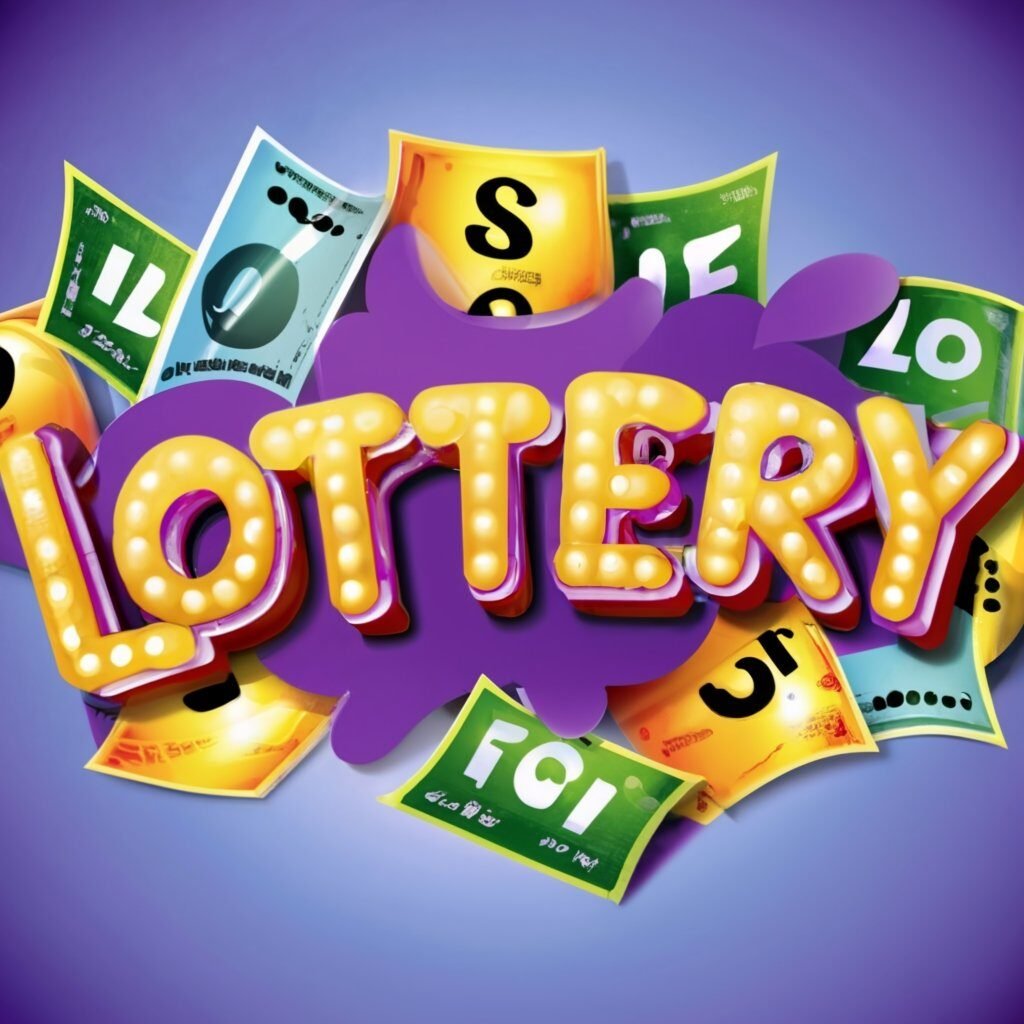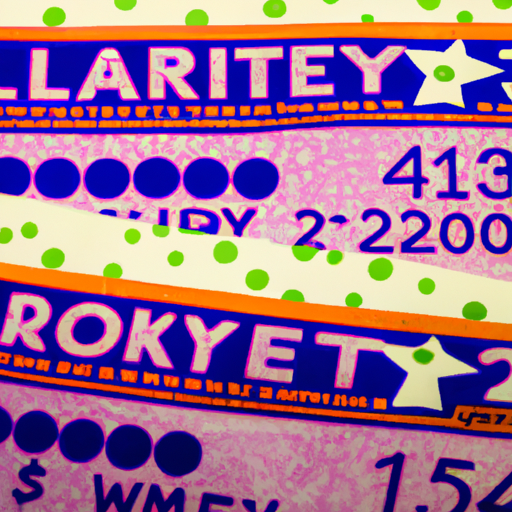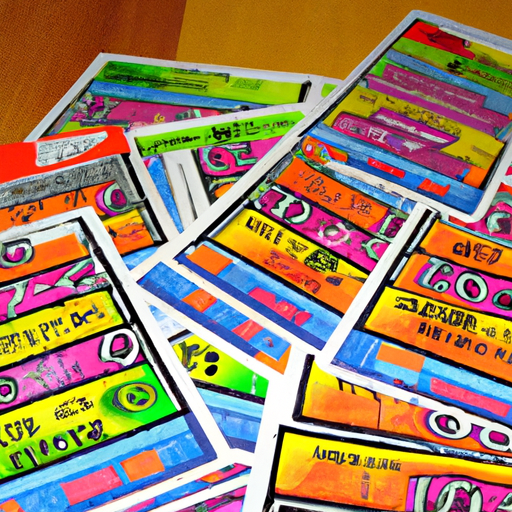Have you ever wondered about the origins of lottery money? In this article, we will explore the various sources that contribute to the massive sums of money available for lottery jackpots. From ticket sales and unclaimed prizes to government funding and multi-state collaborations, you’ll discover the diverse avenues through which lottery money is generated. Whether you’re a frequent player or simply curious, join us as we unravel the fascinating world of where lottery money truly comes from.
Lottery Revenue Sources
Ticket Sales
Ticket sales are the primary source of revenue for lotteries. When you purchase a lottery ticket, whether it’s a scratch-off ticket or a draw game ticket, you are contributing to the overall revenue generated by the lottery. Ticket sales account for the majority of the funds that are used for various purposes, such as prize payouts, operating expenses, and funding for education and public projects.
Scratch-Off Tickets
Scratch-off tickets are a popular form of instant-win games offered by lotteries. These tickets come in various price points, ranging from a few dollars to higher-priced tickets that offer larger potential prizes. Scratch-off tickets have gained popularity among players due to their simplicity and the excitement of immediately revealing whether you’ve won a prize. The profit margin analysis of scratch-off tickets shows that they contribute significantly to the overall revenue of lotteries.
Draw Games
Draw games are another major source of lottery revenue. These games include popular options like Lotto, Powerball, Mega Millions, Pick 3, Pick 4, and even fantasy sports games. Draw games involve players selecting numbers or combinations of numbers, and prizes are awarded based on matching the winning numbers drawn. The odds and prize structure for each draw game vary, but the potential for large jackpots often attracts a significant number of players, contributing to the revenue generated by lotteries.
Multi-State Lotteries
Multi-state lotteries, such as Powerball and Mega Millions, are a collaboration between multiple lottery organizations to offer larger jackpots and increase the excitement for players. Pooling resources from participating states allows for the growth of jackpots, making these games incredibly popular among players. The revenues generated from multi-state lotteries provide a significant boost to the overall lottery revenue, benefiting all participating states through an interstate agreement.
Instant Win Games
In addition to scratch-off tickets, lotteries also offer a variety of instant win games. These games come in different formats, including online availability for added convenience. Virtual scratch-offs, for example, simulate the experience of scratching off a physical ticket on your computer or mobile device. Instant win games provide players with immediate gratification and contribute to the revenue stream of lotteries. Prize payout rates are carefully determined to balance the excitement of winning with the sustainability of revenue generation.
Keno and Bingo
Lotteries have expanded beyond traditional ticket-based games and now offer popular casino-style games like keno and bingo. These games have been adapted to generate revenue for lotteries, both within casinos and outside of them. Keno and bingo provide the opportunity for potential progressive payouts, adding to the excitement for players. Additionally, some states have designated keno as an official state game, further contributing to the revenue generated from these games.
Online Lottery Sales
With the increasing popularity of online platforms, lotteries have started embracing the trend of online lottery sales. While geographic restrictions may apply, online lottery sales provide increased accessibility for players. Instead of having to physically purchase a ticket, players can now conveniently make digital ticket purchases from the comfort of their own homes. Many lotteries also offer mobile applications, allowing players to easily participate in their favorite games wherever they are.
Responsible Gaming Programs
As lotteries generate revenue, it is crucial to prioritize player protection and promote responsible gaming. Lotteries have implemented various measures to ensure the well-being of players. Preventative measures, such as age verification, are in place to prevent underage individuals from participating. Additionally, responsible gaming programs offer resources and support for individuals who may develop gambling-related problems. Self-exclusion programs are also available, allowing individuals to voluntarily exclude themselves from participating in lottery activities if they feel it is necessary.
Funding Distribution
Prize Payouts
A significant portion of lottery revenue goes towards prize payouts. Lottery players have the chance to win a wide range of prizes, from small amounts to life-changing jackpots. The prize payout structure is carefully managed to ensure that a reasonable percentage of revenue is allocated for prizes, providing players with an exciting potential return on their investment.
Operating Expenses
Operating expenses encompass various costs associated with running a lottery. These expenses include salaries for employees, administrative costs, rent and utilities for lottery headquarters, and more. It is important to allocate a portion of the revenue towards covering these necessary expenses to ensure the smooth operation of a lottery.
Retailer Commissions
Lotteries work with retailers who sell lottery tickets on their behalf. These retailers receive commissions for their role in selling tickets. Retailers play an essential part in ticket distribution and provide convenience for players by offering tickets at various locations. Allocating a portion of the revenue for retailer commissions incentivizes retailers to continue selling lottery tickets and contributes to the overall revenue stream.
Education Funding
One of the significant benefits of lotteries is the funding they provide for education. A portion of the revenue generated is directed towards educational initiatives, such as funding schools, scholarships, educational programs, and more. By allocating a percentage of the revenue for education, lotteries contribute to the betterment of communities and provide opportunities for individuals to pursue their educational goals.
Public Projects and Infrastructure
lottery revenue also plays a role in funding public projects and infrastructure developments. Funds are allocated towards initiatives that benefit the community, such as building or improving public facilities, supporting public transportation projects, and enhancing infrastructure overall. This ensures that lottery revenue contributes to the betterment of society and the development of vital public amenities.
Problem Gambling Assistance
In recognition of the potential risks associated with gambling, lotteries allocate funds towards problem gambling assistance programs. These programs aim to provide support and resources for individuals who may develop gambling-related problems. By prioritizing problem gambling assistance, lotteries demonstrate their commitment to player protection and promoting responsible gaming practices.
Administrative Costs
Administrative costs are a necessary aspect of running a lottery. These costs include salaries for staff members, general office expenses, and other administrative needs. Allocating a portion of the revenue towards administrative costs ensures the effective functioning of the lottery organization and the support it provides to players and retailers.
Unclaimed Prizes Allocation
Despite the excitement and anticipation surrounding lotteries, there are instances where prizes go unclaimed. At the end of the specified claim period, unclaimed prizes are allocated based on the lottery’s regulations. Some lotteries transfer unclaimed prizes to specific funds, such as education or problem gambling assistance, ensuring that the unclaimed prize money is put to good use within the community.
Marketing and Advertising
To generate revenue, lotteries dedicate a portion of their funding towards marketing and advertising efforts. These strategies help raise awareness about available games and prizes, attracting new players and encouraging existing players to continue participating. Marketing and advertising campaigns promote the excitement and potential rewards of playing the lottery, ultimately increasing ticket sales and revenue.
Responsible Gaming Programs
Lotteries invest in responsible gaming programs that focus on player protection and promoting responsible gambling practices. These programs offer resources and support for individuals who may be at risk of developing gambling-related problems. By dedicating a portion of the revenue towards responsible gaming programs, lotteries demonstrate their commitment to the well-being of players and their efforts to promote a safe and enjoyable gaming environment.
Ticket Sales
Primary Source of Lottery Revenue
Ticket sales are the lifeblood of lotteries, serving as their primary source of revenue. Every time you purchase a lottery ticket, you contribute to the overall revenue generated by the lottery organization. Whether you’re buying a scratch-off ticket or participating in a draw game, your ticket purchase plays a crucial role in funding a variety of initiatives and programs within your state.
Varying Ticket Prices
Lotteries offer tickets at various price points to cater to different budgets and gaming preferences. From low-cost tickets that are more accessible to a wider audience to higher-priced tickets with potentially larger prizes, there is a range of options available to players. The varying ticket prices ensure that individuals can participate in lotteries according to their financial capabilities and desired level of risk.
Purchase Locations
lottery tickets can be purchased from a wide range of locations, adding to the convenience for players. From dedicated lottery retailers to convenience stores, supermarkets, and even online platforms, there are numerous avenues to purchase tickets. The availability of multiple purchase locations encourages more people to participate, contributing to the revenue generated by lotteries.
Peak Sales Periods
Lotteries experience peak sales periods, where ticket sales surge due to heightened excitement or larger jackpots. These peak sales periods often coincide with special draws, significant jackpot increases, or promotional events. For example, Powerball and Mega Millions often see a surge in ticket sales when their jackpots reach particularly staggering amounts. These peak sales periods significantly impact lottery revenue and can lead to record-breaking jackpots.
Promotional Events
Lotteries frequently host promotional events to engage with players and boost ticket sales. These events can range from special draws with increased odds of winning to exclusive giveaways and collaborations with other organizations. Promotional events generate excitement and encourage people to participate by highlighting the potential rewards and fun associated with playing the lottery. The revenue generated from increased ticket sales during these events helps fund various initiatives supported by lotteries.
Overall, lottery revenue is derived from a variety of sources, primarily ticket sales. Whether you’re purchasing a scratch-off ticket, participating in a draw game, or playing online, your contribution helps fund prize payouts, operating expenses, retailer commissions, education funding, public projects, and other essential aspects of your state’s lottery organization. By understanding the revenue sources and how funding is distributed, you can appreciate the impact your participation has on your community and the opportunities it creates for individuals across the state.






